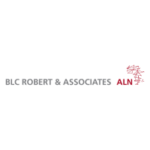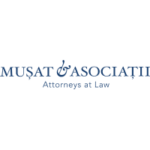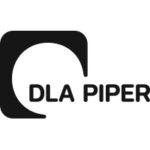-
What are the national authorities for banking regulation, supervision and resolution in your jurisdiction?
The national authorities for banking regulation, supervision and resolution in Zimbabwe are (sector specific):
- The Reserve Bank of Zimbabwe;
- The Ministry of Finance, Economic Development and Investment Promotion; and
- The Deposit Protection Corporation.
-
Which type of activities trigger the requirement of a banking licence?
In terms of section 7 of the Banking Act [Chapter 24:20], the following activities trigger the requirement of a banking license;
- receiving deposits;
- extending credit, including— (i) consumer and mortgage credit; and (ii) factoring, with or without recourse; and (iii) the financing of commercial transactions; and (iv) the recovery, by foreclosure or other means, of amounts so extended; and (v) forfaiting, that is to say, the medium-term discounting without recourse of bills, notes and other documents evidencing an exporter’s claims on the person to whom the exports are sent;
- buying and selling instruments, whether for the account of the banking institution concerned or for the account of its customers, including the underwriting of— (i) money market instruments including cheques, bills of exchange and certificates of deposit; and (ii) futures, options and other financial derivatives relating to debt securities or interest rates; and (iii) exchange and interest rate instruments; and (iv) debt securities and equity;
- providing money transmission services;
- subject to the Exchange Control Act [Chapter 22:05], buying and selling foreign currencies, including forward and option-type contracts for the future sale of foreign currencies;
- issuing and administering means of payment, including credit cards, travellers’ cheques and bankers’ drafts;
- money broking;
- the safekeeping and administration of valuables, including securities;
- providing services as a portfolio manager or adviser or as a financial agent or consultant;
- financial leasing;
- entering into or taking cession of hire-purchase contracts in accordance with the Hire-Purchase Act [Chapter 14:09];
- buying and selling shares on behalf of customers; and
- providing credit reference services.
-
Does your regulatory regime know different licenses for different banking services?
There are three (3) segments of licensing for banking businesses, namely Tier I, Tier II and Tier III and these are according to the minimum capital requirements. The licensing regime is summarized below:
Segment Type of institution Capital requirement Activities Tier I Large indigenous commercial banks and all foreign banks US$30 million Core banking activities plus additional activities such as mortgage lending, leasing and hire purchase Tier II Commercial banks, merchant banks, building societies, development banks, finance and discount houses US$20 million Core banking activities only Tier III Deposit taking microfinance banks US$5 million Deposit taking microfinance activities -
Does a banking license automatically permit certain other activities, e.g., broker dealer activities, payment services, issuance of e-money?
A full banking license typically includes the ability to offer payment services and issuance of e-money, as well as other traditional banking services. However, a banking license generally does not automatically encompass the ability to provide broker-dealer services. A separate license is required, primarily from the Securities and Exchange Commission of Zimbabwe.
-
Is there a “sandbox” or “license light” for specific activities?
Yes. In banking, a “regulatory sandbox” allows fintech innovators to test new products or services in a controlled, real-world environment under a relaxed regulatory framework. In February 2021, the Reserve Bank of Zimbabwe (“RBZ”) introduced the Fintech Regulatory Sandbox Guidelines (“Sandbox Regulations”) to provide a regulatory environment that is conducive for the deployment of financial technology (“fintech”).
Recently, the financial services sector in Zimbabwe has witnessed a growing number of fintech start-ups keen to offer innovative financial products and services. It has been noted that, as in many jurisdictions across the globe, these institutions require support and an enabling research and development environment. The Sandbox Guidelines were therefore introduced against this background.
The sandbox activities which are subject of testing by the RBZ are those activities which the RBZ would be able to oversee in terms of the Reserve Bank of Zimbabwe Act, [Chapter 22:15]; Banking Act, [Chapter 24:20], The National Payment Systems Act, [Chapter 24:23]; The Money Laundering and Proceeds of Crime Act, [Chapter 9:24]; Exchange Control Act [Chapter 22:05] and any other relevant regulations.
In terms of the Sandbox Regulations, the following fintech activities are eligible for testing:
- APIs mobile money services;
- Retail payments;
- Money transfer services;
- Peer-to-peer/Marketplace lending;
- Digital KYC;
- Financial advisory services;
- Wealth management services;
- Digital identification services;
- Smart contracts;
- Financial inclusion products;
- Cyber security products;
- Equity crowdfunding;
- Regulatory technology products.
The following activities are not eligible for testing:
- Crypto currency;
- Digital currency;
- Central bank digital currency.
A “license light” being a simplified banking license which allow institutions to offer financial services with a lower regulatory footprint is also available in Zimbabwe. In December 2021, the RBZ issued the Operational Guidelines for Authorized Dealers with Limited Authority (ADLAs). The regulated ADLAs are money transfer agencies and bureaux de change.
-
Are there specific restrictions with respect to the issuance or custody of crypto currencies, such as a regulatory or voluntary moratorium?
There are no specific restrictions with respect to the issuance or custody of crypto currencies. Cryptocurrencies are not regulated or protected by law in Zimbabwe.
-
Do crypto assets qualify as deposits and, if so, are they covered by deposit insurance and/or segregation of funds?
Crypto assets do not qualify as deposits in Zimbabwe. Virtual currencies do not have legal tender status as they are neither issued by the Reserve Bank nor guaranteed by the Government.
-
If crypto assets are held by the licensed entity, what are the related capital requirements (risk weights, etc.)?
Crypto assets do not have legal tender status and are not regulated in Zimbabwe. There are no capital requirements that can relate to such assets.
In May 2018, the Reserve Bank of Zimbabwe issued a press statement warning against trading in cryptocurrencies in which it stated that it has not authorized or licensed any person or entity or exchange for the issuance, sale, purchase, exchange or investment in any virtual currencies/coins/tokens in Zimbabwe. Accordingly, no regulated entity can formally hold crypto assets.
-
What is the general application process for bank licenses and what is the average timing?
The application for a banking license is regulated in terms of section 8 of the Banking Act [Chapter 24:20] as read with section 3 of Banking Regulations SI 205 of 2000.
An applicant is required to submit completed Application Form BK1 and the requisite supporting documentation to the Registrar of Banking Institutions at the Reserve Bank of Zimbabwe. The supporting documents includes the following:
- a certified copy of the applicant’s memorandum of association or other constitution, together with its articles of association or other rules for the conduct of its business;
- the names and details of the qualifications and experience of the applicant’s directors, the chief executive officer and chief accounting officer, by whatever title they are called, and such of the applicant’s other officers as may be prescribed;
- details of the applicant’s authorized and paid-up share capital;
- details of the applicant’s business plan and structural organisation;
- the name, address and such other particulars as may be prescribed of each person who holds five per centum or more of the applicant’s voting stock;
- the prescribed application fee; and
- such other information and documents as may be prescribed or as the Registrar may reasonably require.
As part of the application process, the Registrar of Banking Institutions will conduct fitness and probity tests for all applicant’s accountable persons, that is, significant shareholders, directors, and senior management, in accordance with the Prudential Standards No. 07-2014/BSD: Fitness & Probity Assessment Criteria.
Before deciding whether or not to grant an application, the Registrar of Banking Institutions, through the Governor of the Reserve Bank of Zimbabwe, consults the Minister of Finance and the Deposit Protection Corporation and shall them with such information regarding the application as they may reasonably require.
The period between the Registrar’s receipt of an application and the date of the decision should not exceed a period of six (6) months, unless an applicant consent to an extension.
-
Is mere cross-border activity permissible? If yes, what are the requirements?
Yes, cross-border activity is permissible in Zimbabwe. An entity may establish a representative office or conduct business from a representative office subject to the prior approval of the Registrar of Banking Institutions.
An application for the Registrar’s approval must be made in the prescribed form and manner and must be accompanied by the following:
- a certificate from the regulatory authority of the country in which the foreign banking institution’s head office is situated, to the effect that the foreign banking institution is authorized to conduct banking business in that country;
- payment of the prescribed application fee;
- such other documents and information as may be prescribed or as the Registrar may reasonably require.
-
What legal entities can operate as banks? What legal forms are generally used to operate as banks?
Only public companies are eligible to apply for a banking license and operate as banks.
-
What are the organizational requirements for banks, including with respect to corporate governance?
According to section 18 (1) of the Banking Act, every banking institution and controlling company of a banking institution shall be directed by a board consisting of not fewer than five (5) directors.
A minimum of two (2) and not more than two-fifths (2/5) of the directors of a bank are required to be officials or employees of the bank – section 18(2) of the Banking Act. The remainder of the directors must be non-executive and independent – section 18(2) of the Banking Act.
The definition of “independent” directors is quite broad and demanding. In terms of section 2(4) of the Banking Act, a director is regarded as independent if he or she:
- does not hold a significant interest in the banking institution or controlling company (i.e. more than 5% of the issued share capital);
- is not an officer or employee of the banking institution or controlling company and has not been such for the preceding three years;
- is not an officer or employee in a group of companies of which the banking institution or controlling company is a member;
- is not a professional advisor of the banking institution or controlling company;
- does not have and has not had any direct or indirect contractual or business relationship with the banking institution or controlling company which might reasonably impair his/her independence;
- does not receive or has not received remuneration from the banking institution or controlling company apart from director’s fees;
- does not represent a shareholder of the banking institution or controlling company in any capacity;
- is not a member of a pension scheme run by the banking institution or controlling company;
- is not a close relative of any director, officer or adviser of the banking institution or controlling company; and
- generally, has no relationship with the banking institution or controlling company or with its directors, staff, business associates or customers which might reasonably compromise his/her
The chairperson of the board must be a non-executive and independent director – section 18(3) of the Banking Act.
According to section 19 of the Banking Act and the Banking Licensing, Supervision and Surveillance Corporate Governance Guideline No. 01-2004/BSD, the following persons are disqualified from appointment as directors of a banking institution:
- a non-executive director who is a director of more than three other companies in Zimbabwe;
- an executive director who is a director of more than three other companies in Zimbabwe;
- a director of another banking institution;
- a person who, under the law of any country, is declared insolvent or bankrupt and has not been rehabilitated or a person who has made an assignment to his creditors or a person who has been convicted of a financial crime (e.g. theft, fraud, forgery, money laundering) or a person who has been convicted of any crime with a custodial sentence; and
- a person who is adjudged not a fit and proper person to be a director of a banking institution or controlling company.
Upon appointment or re-appointment of a director, the person appointed or re-appointed shall not exercise any functions of a director unless the appointment or re-appointment has been approved by the Registrar of Banking Institutions pursuant to fitness and probity tests being conducted– section 18 (1a) as read with section 18 (1d) of the Banking Act.
Board members of a banking institution are required to hold the necessary skills, experience, depth and diversity to provide direction and oversee the operations of the bank. To that end, the minimum qualifications of the board members are an academic or professional diploma or a degree.
The board of a banking institution should maintain board committees to assist the board of directors perform its oversight function effectively. A banking institution should have the following minimum board committees: risk committee, audit committee, and credit committee.
In terms of section 5 of the Banking Regulations, in addition to the chief executive officer and chief accounting officer, every banking institution shall, where the nature of the institution’s banking business requires it, appoint and provide details of the qualifications and experience of the following individual officers (by whatever title they are called), that is, the officers who shall be responsible for –
- risk management;
- lending and credit administration;
- operations and internal controls;
- investments and asset/liability management;
- treasury and foreign exchange operations;
- trust and fiduciary operations, where a banking institution proposes to engage in these activities.
-
Do any restrictions on remuneration policies apply?
Yes. The Banking Licensing, Supervision and Surveillance Corporate Governance Guideline No. 01-2004/BSD provides the following restrictions on remuneration policies:
- The remuneration of directors and the chief executive shall not be out of line with the nature and size of operations of a banking institution. The directors and chief executive should not avail themselves of unreasonably bountiful remuneration, with excessive bonuses and fringe benefits relative to the profits and operations of the banking institution. Non-executive directors should not expect executive pay.
- As a matter of principle, the chief executive of a group should draw all his salary, including benefits, from one source, usually the parent company. While the chief executive of a banking institution is entitled to receive director’s fees from that institution’s subsidiaries, such fees should be nominal.
-
Has your jurisdiction implemented the Basel III framework with respect to regulatory capital? Are there any major deviations, e.g., with respect to certain categories of banks?
The Reserve Bank of Zimbabwe (RBZ) is at an early stage of implementing Basel III liquidity requirements with support from the International Monetary Fund (IMF).
A technical assistance mission from the Monetary and Capital Markets of the IMF conducted a virtual mission from 8-19 May 2023 the purpose of which was to assist the RBZ on implementing the Basel III capital framework, considering Zimbabwe’s specific circumstances and applying proportionality. The IMF reviewed Zimbabwe’s prudential capital framework, which includes laws and regulations, identified areas for updating capital and made recommendations for drafting amendments that align primarily with the Basel III framework, particularly focusing on standardized approaches.
-
Are there any requirements with respect to the leverage ratio?
Yes. Currently, in terms of the RBZ Bank Licensing, Supervision & Surveillance Technical Guidance on the Implementation of the Revised Capital Adequacy Framework in Zimbabwe Guideline No: 1-2011/BSD, the minimum leverage capital ratio for banking institutions is 6%. The Basel III framework requires banks to have a leverage ratio of at least 3%.
-
What liquidity requirements apply? Has your jurisdiction implemented the Basel III liquidity requirements, including regarding LCR and NSFR?
The RBZ Bank Supervision Division Prudential Standard No: 02-2022/BSD: Guidance on the Implementation of the Liquidity Coverage Ratio provides guidance on the computation of the LCR and outlines the RBZ’s disclosure requirements for the Liquidity Coverage Ratio (LCR) which are expected to improve the transparency of regulatory liquidity requirements, reinforce banking institutions’ liquidity management practices, enhance market discipline, and reduce uncertainty in the markets.
Generally, the liquidity scenarios that generate the stress considered under the Prudential Standard entail a combined idiosyncratic and market-wide shock that would result in:
- the run-off of a proportion of retail deposits;
- a partial loss of unsecured wholesale funding capacity;
- a partial loss of secured, short-term financing with certain collateral and counterparties;
- additional contractual outflows that would arise from a downgrade in the bank’s public credit rating by up to and including three notches, including collateral posting requirements;
- increases in market volatilities that impact the quality of collateral or potential future exposure of derivative positions and thus require larger collateral haircuts or additional collateral, or lead to other liquidity needs;
- unscheduled draw-downs on committed but unused credit and liquidity facilities that the bank has provided to its clients; and
- the potential need for the bank to buy back debt or honor non-contractual obligations in the interest of mitigating reputational risk.
Zimbabwe is in the process of implementing the Basel III liquidity requirements. In March 2022, the IMF released a technical assistance report on the implementation of Basel III framework in Zimbabwe. The report states that the IMF reviewed the RBZ drafts of the LCR and Net Stable Funding Ratio (NSFR) frameworks, discussed identified material gaps with the RBZ Banking Supervision Division management and relevant supervisors, and provided many recommendations on enhancing the drafts of liquidity regulations, monitoring tools, reporting templates, and disclosure. The development of an NSFR regulation and the strengthening of liquidity supervision would complement the current Zimbabwean liquidity framework, contributing to the stability of the financial system. The MIF’s goal is to ensure that the draft regulations are adequately comprehensive. The draft regulations are intended to provide a basis for discussion with banks and to facilitate analysis of the impact of the new requirements. Further actions for implementing Basel III liquidity standards were agreed between the IMF and the RBZ.
-
Which different sources of funding exist in your jurisdiction for banks from the national bank or central bank?
According to section 59 of the Banking Act, the Reserve Bank of Zimbabwe may grant, to any banking institution which holds an account with it, loans on such terms and conditions as it may determine and for a period not exceeding three (3) months which may be renewable. The said loans should be secured by any of the following assets –
- assets specified in section 49(1) of the Reserve Bank of Zimbabwe Act [Chapter 22:15] (“RBZ Act”), that is:
- gold or foreign assets convertible into gold; or
- foreign exchange in the form of notes and coins or account balances held by the RBZ abroad in foreign currencies; or
- any other internationally recognised reserve assets; or
- bills of exchange and promissory notes, payable in foreign currencies; or
- securities that have been issued or guaranteed, and net entitlements of the RBZ under loan agreements, forward purchase and repurchase agreements, swap agreements, options and other agreements that have been concluded with or guaranteed by, foreign states, foreign central banks or international financial organisations, and that are denominated and provide for payment in foreign currencies;
- other securities issued or guaranteed by, and payable within, Zimbabwe, denominated in Zimbabwean currency and forming part of a public issue; or
- warehouse receipts and documents of title issued in respect of staple commodities or other goods duly insured against risk of loss or damage; or
- deposits with the RBZ or with a depository acceptable to the RBZ of any assets which the RBZ is permitted to buy or sell or deal in under the RBZ Act.
In addition, in terms of section 11(5) of the RBZ Act, the RBZ may, on such terms and conditions as it may determine, act as lender of last resort for banking institutions, by granting to them or for their benefit, for periods not exceeding three (3) months –
- loans other than those authorized by section 59 of the Banking Act; and
- contingent commitments.
Generally, the loans granted in terms of section 11(5) of the RBZ Act should also be secured by any of the assets specified hereinabove, unless the RBZ decides that an unsecured loan or contingent commitment is justifiable because of exceptional circumstances.
- assets specified in section 49(1) of the Reserve Bank of Zimbabwe Act [Chapter 22:15] (“RBZ Act”), that is:
-
Do banks have to publish their financial statements? Is there interim reporting and, if so, in which intervals?
Yes, banks are obligated to publish their financial statements.
The disclosure requirements are specified in section 4 of the Banking Licensing, Supervision & Surveillance: Disclosure Requirements for Financial Institutions Guideline No. 01-2007/BSD, as follows:
- every banking institution shall report on a half-yearly (interim) and year-end basis on its financial position in at least two widely circulated national newspapers not later than 60 days after the end of the interim period and audited results not later than 90 days after year-end; and
- a banking institution that is part of a banking group is required to report both group-wide consolidated financial statements as well as the financial statements for the banking entities on a stand-alone basis.
-
Does consolidated supervision of a bank exist in your jurisdiction? If so, what are the consequences?
Consolidated supervision exists as a supervisory method in Zimbabwe as it is generally an international standard. It is regulated by the RBZ Consolidated Supervision Policy Framework Guideline No. 02-2007/BSD as a prudential supervision approach used to evaluate the financial condition of individual banking institutions within a group and the strength of an entire group, taking into account the risks which may affect entities within the group, regardless of whether these risks are carried in the books of the bank or related entities. It applies to every banking institution, bank holding company, financial conglomerate, mixed activity group, and their associates.
The consequences of consolidated supervision include the following:
- improved identification and mitigation of systemic risks;
- uniformity in the management of banks;
- ensuring compliance with regulations at both individual and group levels;
- promoting financial stability through adequate capital buffers; and
- encourages operational efficiency by optimizing resource allocation while imposing increased scrutiny, which can lead to higher compliance costs and operational challenges.
-
What reporting and/or approval requirements apply to the acquisition of shareholdings in, or control of, banks?
In terms of section 15A of the Banking Act, without the permission of the Registrar of Banking Institutions:
- no individual shall hold shares in a banking institution or a controlling company if the shares exceed twenty-five per centum (25%) of the total nominal value or the total voting rights of all the issued shares of the banking institution or controlling company;
- no body corporate, other than a financial institution, or a registered controlling company, or an approved body corporate shall hold shares in a banking institution or a controlling company if the shares exceed twenty-five per centum (25%) of the total nominal value or the total voting rights of all the issued shares of the banking institution or controlling company.
In terms of section 15B of the Banking Act a person that intends to acquire a significant interest (that is, 5% of shareholding or more) in a banking institution or controlling company must disclose their intention to the banking institution and first obtain approval from the Registrar of Banking Institutions. Once a bank becomes aware that someone has acquired or obtained a significant interest in a banking institution or controlling company, it must notify the Registrar in writing as soon as possible.
Further, in terms of section 15F of the Banking Act a foreign company which conducts business similar to that of a banking institution in a foreign country may exercise control over a banking institution in Zimbabwe subject to the approval of the Registrar of Banking Institutions.
-
Does your regulatory regime impose conditions for eligible owners of banks (e.g., with respect to major participations)?
When considering an application for a banking license, the RBZ conducts a fitness and probity test on eligible owners of a bank in terms of Prudential Standards No. 07-2014/BSD: Fitness & Probity Assessment Criteria. The criteria consider the suitability of the owners, having regard to their likely influence over the bank and to ensure they have the necessary integrity and competence. The RBZ assesses the following:
- Probity, personal integrity and reputation;
- Competence and capability; and
- Financial soundness.
Subject to the tests, the RBZ may impose conditions for eligible owners on various matters, including but not limited to the following:
- limits on shareholding;
- change of ownership or control of the controlling company;
- participation and involvement in the business of the bank; and
- access to loans.
In terms of section 16 of the Banking Regulations, banks are restricted from extending loans to insiders (employee, officer, director or principal shareholder of the institution) and their relatives to prevent conflicts of interest and ensure financial stability. Specifically, banks cannot give loans to insiders if the total amount exceeds 25% of the bank’s capital base. If the loans exceed 5%, they must be disclosed to and approved by the bank’s board, with the insider abstaining from any related discussions or votes. Overall, the total loans to insiders and their relatives cannot exceed 100% of the bank’s capital base, or 200% if including employment-related loans. Furthermore, banks cannot extend more than 25% of their capital base to partnerships controlled by insiders or their relatives.
-
Are there specific restrictions on foreign shareholdings in banks?
The RBZ Foreign Exchange Guidelines contain the following restrictions on foreign shareholding in banks which are listed on the Zimbabwe Stock Exchange:
- Foreign investors or non-residents may participate on the Zimbabwe Stock Exchange provided they finance the purchase of shares by inward transfer of foreign currency through normal banking channels;
- The purchase of shares shall be limited to 40% of the total equity of the company with a single investor acquiring a maximum of 10% of the shares on offer.
-
Is there a special regime for domestic and/or globally systemically important banks?
Yes. The RBZ Bank Supervision Division: Framework for Dealing with Domestic Systematically Important Banking Institutions Prudent Standard No. 01-2020BSD is unique regulatory system for domestically systemically important banks (DSIBs). A DSIB is a local banking institution whose failure or distress might lead to market wide disruption in the provision of financial services thereby generating negative externalities. The negative externalities include economic or social costs to people beyond the shareholders, creditors and employees of the distressed systemically important banking institution. The Reserve Bank of Zimbabwe identifies these banks and enforces stricter regulations on them compared to smaller banks.
However, there is no special regime in place for globally systemically important banks (G-SIBs) in Zimbabwe.
-
What are the sanctions the regulator(s) can order in the case of a violation of banking regulations?
The sanctions the RBZ may impose in the case of a violation of banking regulations depend on the type and severity of the breach. According to section 48 of the Banking Act, the RBZ’s powers include the following:
- issue a warning to the institution;
- require the institution or company to appoint a person who, in the Reserve Bank’s opinion, is qualified to advise the institution or company on the proper conduct of its business;
- issue a written instruction to the institution or company to undertake remedial action specified in the instruction;
- impose a monetary penalty;
- instruct the institution or company to suspend or remove any of its directors, officers or employees from his duties;
- direct the institution or company to suspend all or any of its banking business;
- appoint a supervisor to monitor the affairs of the institution or company;
- convene a meeting of the shareholders or other owners of the institution or company to discuss the remedial measures to be taken;
- place the institution or company under the management of a curator;
- recommend to the Registrar of Banking Institutions:
- the imposition of any term or condition on the continued registration of the institution or company, or the deletion of any such term or condition; or
- the cancellation of the registration of the institution or company.
-
What is the resolution regime for banks?
Section 52A of the Banking Act provides for measures to address a problem banking institution, that is, a bank whose capital adequacy, asset quality or liquidity or solvency is, or will be (in the opinion of the Registrar), significantly impaired unless there is a major improvement in its financial resources, risk profile, strategic business direction, risk management capabilities or quality of management. Where the Reserve Bank, following a report by an inspector or an investigation, or on the basis of financial intelligence which in its opinion is sound and sufficient, has identified a banking institution as a problem banking institution it may formulate and implement a plan of resolution in relation to the banking institution (a “bank resolution plan”) involving any of the following measures –
- the merging of the problem banking institution with another banking institution;
- the acquisition of the problem banking institution by another banking institution;
- the acquisition by or transfer to a third party of any asset or liability of the problem banking institution, including any asset held in trust;
- the establishment of a bridging banking institution to acquire part or all of the assets and liabilities of the problem banking institution;
- the taking of control of the problem banking institution by a curator with powers to establish and institute a timely plan of resolution;
- the winding up of the problem banking institution;
- the taking of any action necessary to give effect to the plan of resolution, including the sale or closure of any branch, agency or other office of the problem banking institution and, subject to any other law, the dismissal of any of its officers or employees.
In addition to the above, the Troubled Financial Institutions (Resolution) Act [Chapter 24:28] provides a legal framework designed to address the administration of troubled financial institutions and to provide for formulation and implementation of schemes of resolution in respect of such institutions. The principal objects are to ensure the stability of the financial system and safeguarding the interests of the depositors, creditors and members of a troubled financial institution by restoring the troubled financial institution to a sound financial condition.
-
How are client’s assets and cash deposits protected?
Depositors’ assets and cash deposits enjoy protection under the Deposit Protection Corporation Act [Chapter 24:29]. The Act establishes the Deposit Protection Corporation (DPC) whose functions include the following:
- administer the Deposit Protection Fund;
- to levy contributions from contributory institutions;
- to pay compensation to depositors in the event of the insolvency of a contributory institution;
- to monitor the business and activities of contributory institutions to ensure minimal exposure to the fund;
- to assist the Minister of Finance and the RBZ in the formulation and implementation of fiscal and monetary policy so as to ensure sound banking practices and fair competition among banks in Zimbabwe.
Additionally, the RBZ Bank Supervision Division consistently monitors the activities of banks and enforces compliances of the prudential guidelines to ensure their financial stability and protect depositors’ assets and funds.
-
Does your jurisdiction know a bail-in tool in bank resolution and which liabilities are covered? Does it apply in situations of a mere liquidity crisis (breach of LCR etc.)?
There are no concise provisions governing a bail-in tool in Zimbabwe. However, it suffices to note that in terms of the Troubled Financial Institutions (Resolution) Act [Chapter 24:28] an administer has powers to restructure the affairs of a troubled banking institution, and as part of the process may stop or limit the payment of any obligation owed by the bank, including interest. In cases of liquidity issues, such as breaches of the Liquidity Coverage Ratio (LCR), the RBZ may consider liquidity support.
-
Is there a requirement for banks to hold gone concern capital (“TLAC”)? Does the regime differentiate between different types of banks?
There is no such requirement in Zimbabwe. The Total Loss-absorbing Capacity (TLAC) Standard is an international standard enforced by the Financial Stability Board that applies to firms that have been designated as Globally Systemically Important Banks (G-SIBs).
-
Is there a special liability or responsibility regime for managers of a bank (e.g. a "senior managers regime")?
In terms of section 20A of the Banking Act, each director and principal officer of a banking institution or controlling company owes a fiduciary duty and a duty of care and skill to the institution or company and, in particular, owes a duty to –
- act bona fide for the benefit of the institution or company and for the benefit of its depositors and shareholders; and
- avoid any conflict between his or her personal interests and the interests of the institution or company and its depositors and shareholders; and
- possess and maintain the knowledge and skill that may reasonably be expected of a person holding a similar appointment and carrying out similar functions as those that he or she carries out; and
- exercise such care in the carrying out of his or her functions in relation to the institution or company as may reasonably be expected of a diligent person who holds the same appointment under similar circumstances, and who possesses both the knowledge and skill mentioned in paragraph (c) and any additional knowledge and skill that he or she may have.
The potential consequences for breach of fiduciary duties include the following:
- personal liability for damages suffered by either the company or shareholders; and/or
- removal from the office of a director; and/or
- criminal liability, for example, in cases of fraud or misappropriation.
Additionally, in terms of section 18 of the Troubled Financial Institutions (Resolution) Act [Chapter 24:28] if in the course of compiling a statement of the troubled financial institution’s affairs, the administrator is of the opinion that any past or present director, officer or member of the troubled financial institution or other person who it appears to the administrator was knowingly a party to the carrying on of the business of the institution –
- recklessly; or
- with gross negligence; or
- with intent to defraud any person or for any fraudulent purpose;
or that a fraud has been committed by any person in the promotion or formation of the institution, the administrator may summon any person who is or has been a director, officer or member of the institution or has taken part in the promotion or formation of the institution to attend before him or her on a day and at a place he or she shall appoint for that purpose and be examined as to the promotion or formation or the conduct of the business of the institution or as to his or her conduct and dealings as director or officer thereof.
-
In your view, what are the recent trends in bank regulation in your jurisdiction?
Full implementation of the Basel III framework, with the assistance of the International Monetary Fund, is a key focus for the RBZ in the near future.
Recent trends in Zimbabwean banking law also reflect a focus on enhancing regulatory frameworks and promoting financial inclusion. The Reserve Bank of Zimbabwe has implemented measures to strengthen compliance with international standards, such as the Financial Action Task Force (FATF) recommendations, particularly in combating money laundering and terrorist financing. For instance, the Banking Act was amended to improve corporate governance and risk management practices within financial institutions.
Additionally, there has been the increased prominence on mobile banking which is aimed at supporting financial inclusion of every person, local and abroad, by allowing greater access to banking services, which is particularly relevant given the country’s high levels of informal economic activity. These changes signify a shift towards a more robust and inclusive banking environment in Zimbabwe.
Further, Zimbabwean banks have been actively participating in corporate social responsibility (CSR). Various banks in Zimbabwe have been primarily focusing on initiatives that contribute to community development through areas like education, health, environmental sustainability, and financial inclusion, often by providing scholarships, supporting healthcare facilities, promoting green practices, and facilitating access to banking services for underserved communities.
-
What do you believe to be the biggest threat to the success of the financial sector in your jurisdiction?
In our considered view, cyber-attacks are the biggest threat to the success of the financial sector in our jurisdiction. In 2021, the Cyber and Data Protection Act [Chapter 12:07] was enacted which was a major milestone. The Act seeks to establish a legal framework for data protection, cybersecurity, cybercrime, and computer-related crimes. That said, there is still a great need to invest in state-of-the-art financial technologies to deal with the increased cyber security risks.
Zimbabwe: Banking & Finance
This country-specific Q&A provides an overview of Banking & Finance laws and regulations applicable in Zimbabwe.
-
What are the national authorities for banking regulation, supervision and resolution in your jurisdiction?
-
Which type of activities trigger the requirement of a banking licence?
-
Does your regulatory regime know different licenses for different banking services?
-
Does a banking license automatically permit certain other activities, e.g., broker dealer activities, payment services, issuance of e-money?
-
Is there a “sandbox” or “license light” for specific activities?
-
Are there specific restrictions with respect to the issuance or custody of crypto currencies, such as a regulatory or voluntary moratorium?
-
Do crypto assets qualify as deposits and, if so, are they covered by deposit insurance and/or segregation of funds?
-
If crypto assets are held by the licensed entity, what are the related capital requirements (risk weights, etc.)?
-
What is the general application process for bank licenses and what is the average timing?
-
Is mere cross-border activity permissible? If yes, what are the requirements?
-
What legal entities can operate as banks? What legal forms are generally used to operate as banks?
-
What are the organizational requirements for banks, including with respect to corporate governance?
-
Do any restrictions on remuneration policies apply?
-
Has your jurisdiction implemented the Basel III framework with respect to regulatory capital? Are there any major deviations, e.g., with respect to certain categories of banks?
-
Are there any requirements with respect to the leverage ratio?
-
What liquidity requirements apply? Has your jurisdiction implemented the Basel III liquidity requirements, including regarding LCR and NSFR?
-
Which different sources of funding exist in your jurisdiction for banks from the national bank or central bank?
-
Do banks have to publish their financial statements? Is there interim reporting and, if so, in which intervals?
-
Does consolidated supervision of a bank exist in your jurisdiction? If so, what are the consequences?
-
What reporting and/or approval requirements apply to the acquisition of shareholdings in, or control of, banks?
-
Does your regulatory regime impose conditions for eligible owners of banks (e.g., with respect to major participations)?
-
Are there specific restrictions on foreign shareholdings in banks?
-
Is there a special regime for domestic and/or globally systemically important banks?
-
What are the sanctions the regulator(s) can order in the case of a violation of banking regulations?
-
What is the resolution regime for banks?
-
How are client’s assets and cash deposits protected?
-
Does your jurisdiction know a bail-in tool in bank resolution and which liabilities are covered? Does it apply in situations of a mere liquidity crisis (breach of LCR etc.)?
-
Is there a requirement for banks to hold gone concern capital (“TLAC”)? Does the regime differentiate between different types of banks?
-
Is there a special liability or responsibility regime for managers of a bank (e.g. a "senior managers regime")?
-
In your view, what are the recent trends in bank regulation in your jurisdiction?
-
What do you believe to be the biggest threat to the success of the financial sector in your jurisdiction?





















